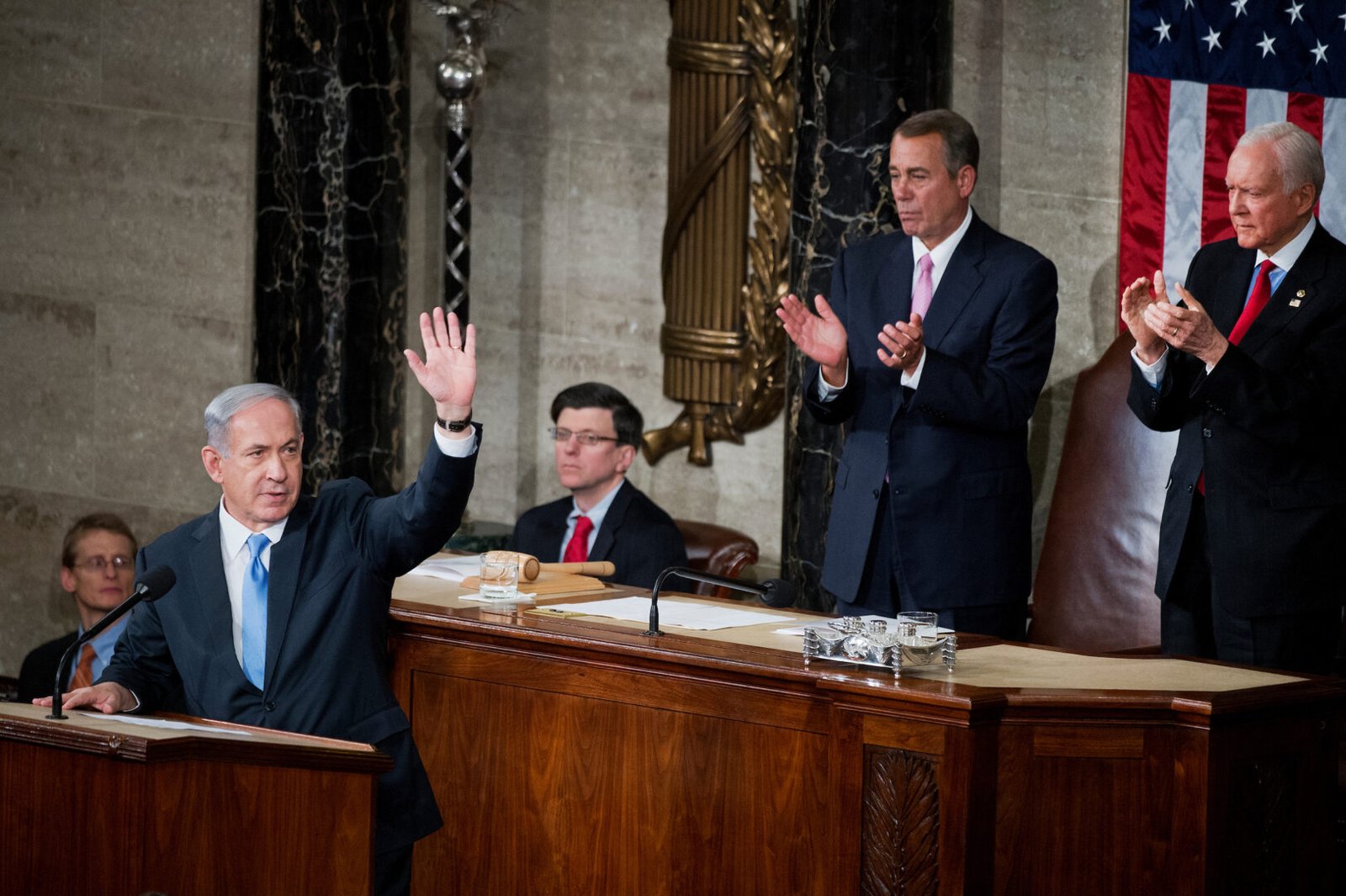Netanyahu's Address Creates a Dilemma for Democrats
The recent address by Israeli Prime Minister Benjamin Netanyahu has thrown a wrench into the political machinery of the Democratic Party in the United States. This development has created a significant dilemma for Democrats, as they navigate the intricate web of international diplomacy, domestic political interests, and the complex dynamics of US-Israel relations. The ramifications of Netanyahu's speech are far-reaching, and the Democratic Party finds itself at a crossroads, trying to balance various competing interests.

Balancing Diplomacy and Domestic Politics
Netanyahu's address has brought to the forefront the delicate balance Democrats must maintain between diplomacy and domestic politics. The Democratic Party has always been a staunch supporter of Israel, but recent developments have strained this relationship. Netanyahu's address has intensified these strains, as Democrats must now weigh their commitment to Israel against the growing calls for a more balanced approach to Middle Eastern politics. The focus keyword here is "Netanyahu address," which highlights the core issue at the heart of this dilemma.
The Biden Administration's Stance
The Biden administration has been put in a precarious position by Netanyahu's address. President Joe Biden and his team have been working to repair and strengthen US-Israel relations after a period of tension during the previous administration. However, Netanyahu's speech has complicated these efforts. The administration must now navigate the fallout from the address while maintaining its broader foreign policy objectives. The focus keyword "Netanyahu address" continues to underscore the central theme of the ongoing political struggle.
The Impact on US-Israel Relations
The Netanyahu address has had a profound impact on US-Israel relations. For decades, the United States has been a key ally of Israel, providing political, military, and economic support. However, Netanyahu's address has highlighted the growing divisions within the Democratic Party regarding US policy towards Israel. Some Democrats are calling for a more critical stance on Israeli policies, particularly concerning the Palestinian issue, while others advocate for continued strong support. This internal debate is a direct consequence of Netanyahu's address, which has forced Democrats to confront these challenging questions.
The Role of Progressive Democrats
Progressive Democrats have been particularly vocal in their response to Netanyahu's address. Figures like Alexandria Ocasio-Cortez and Bernie Sanders have criticized the address and called for a reevaluation of US support for Israel. These progressive voices argue that the United States should take a more balanced approach to the Israeli-Palestinian conflict, emphasizing human rights and justice. The focus keyword "Netanyahu address" remains central to this discussion, as it encapsulates the event that has catalyzed these calls for change within the Democratic Party.
The Political Risks for Democrats
Navigating the political landscape post-Netanyahu address presents significant risks for the Democratic Party. On one hand, alienating the pro-Israel lobby and Jewish voters could have electoral consequences. On the other hand, ignoring the calls for a more balanced approach could alienate the progressive base and young voters who are increasingly critical of Israeli policies. The focus keyword "Netanyahu address" highlights the source of these political risks, as it is the address itself that has brought these issues to the forefront.
The Republican Response
The Republican Party has seized upon Netanyahu's address to criticize the Democratic Party's handling of US-Israel relations. Republicans argue that the Democratic Party is becoming increasingly hostile to Israel, and they use Netanyahu's address as evidence of this shift. This political maneuvering underscores the broader implications of Netanyahu's address, which has become a point of contention between the two major US political parties. The focus keyword "Netanyahu address" continues to be central to this narrative, as it represents the event that has sparked this political debate.
The Media Coverage and Public Perception
The media coverage of Netanyahu's address has played a significant role in shaping public perception. News outlets across the political spectrum have covered the address extensively, with varying interpretations and analyses. This media attention has amplified the impact of Netanyahu's address, ensuring that it remains a prominent issue in the public discourse. The focus keyword "Netanyahu address" is crucial in understanding how the media has framed this event and its implications for US politics.
The Future of US-Israel Relations
Looking ahead, the future of US-Israel relations will be shaped by how the Democratic Party navigates the fallout from Netanyahu's address. The party must find a way to reconcile its diverse views on Israel while maintaining its broader foreign policy goals. The focus keyword "Netanyahu address" will continue to be relevant as the Democratic Party grapples with these challenges and charts a path forward.
Conclusion
In conclusion, Netanyahu's address has created a significant dilemma for Democrats, forcing them to confront complex questions about diplomacy, domestic politics, and US-Israel relations. The focus keyword "Netanyahu address" encapsulates the event that has sparked this debate, highlighting its centrality to the ongoing political struggle within the Democratic Party. As Democrats navigate this challenging landscape, the implications of Netanyahu's address will continue to resonate in US politics for the foreseeable future.


You must be logged in to post a comment.